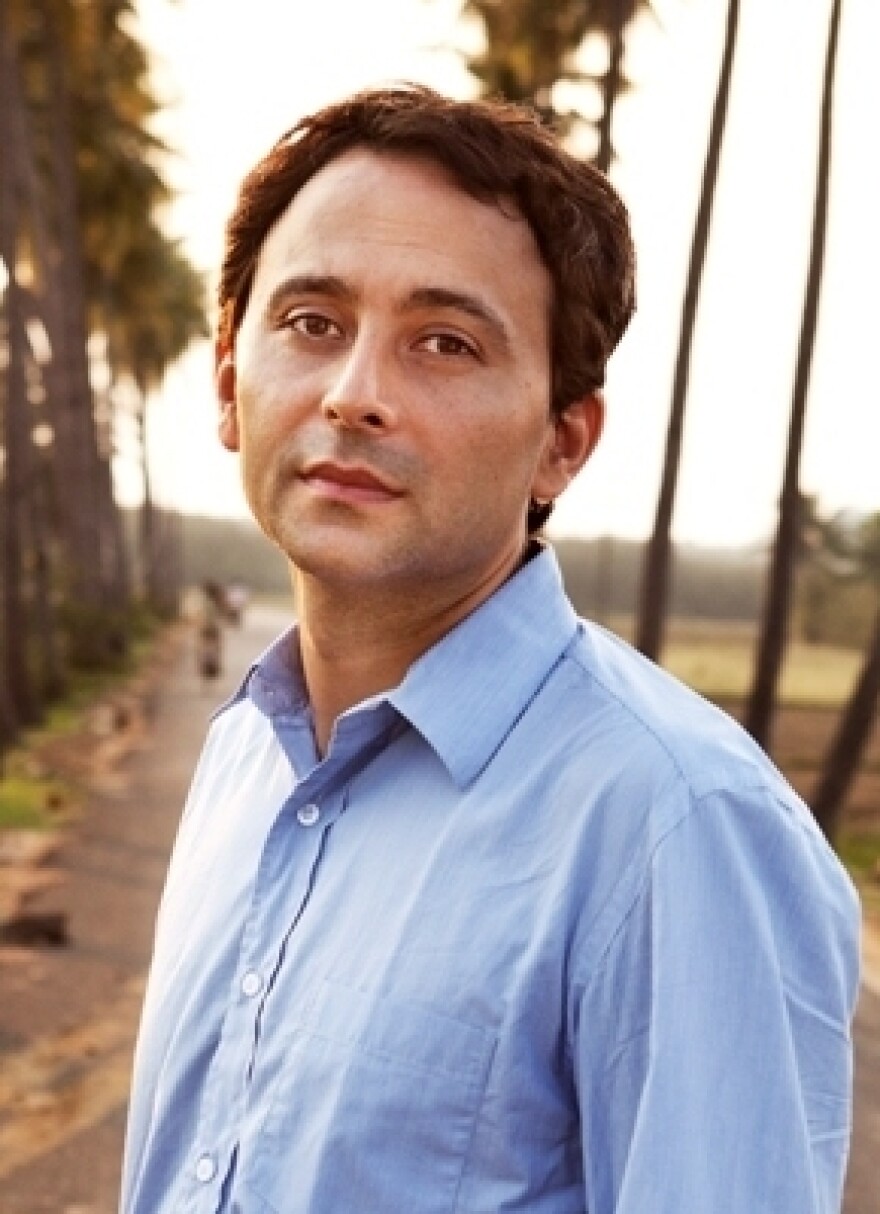Akash Kapur is the son of an Indian father and an American mother. In 2003, after working professionally in New York City for more than a decade, he decided to return to India. As he writes in his book, India Becoming: A Portrait of Life in Modern India, he arrived in a place he hardly recognized.
Shifting Roles
Akash Kapur told weekend All Things Considered host Guy Raz that India's transformation began more than two decades ago.
"In 1991 the country sort of went through this economic crisis, and it was forced to liberalize its economy in many ways," he says. "And that really unleashed this amazing economic boom. And I think it was toward the end of the 1990s that the effects of that boom started being felt in a more cultural or social way."
Kapur tells the story of India's development through the stories of several characters living there. One of the women he profiles is Veena, an ambitious, successful marketing professional who lives in Bangalore.
You wouldn't know she grew up in a very traditional, conservative household, Kapur says.
"She was basically a housewife to her husband and her husband had a career," he says.

Kapur explains that Veena then broke the pattern of her life and divorced her husband, moved to a bigger city and had a live-in boyfriend.
"[Veena] struggles with these issues of family versus career and things like that that an earlier generation of women didn't struggle with in India," Kapur says.
Women like Veena are at the forefront of India's transformation, Kapur says. They are embracing the idea that they have a right to live as individuals.
Caste Changes
Of course not everyone in India is happy with the economic and cultural development Kapur describes in his book. One man, Sathay, who Kapur has known since childhood, is somewhat bothered by how India's development has changed his life.
Sathay, Kapur explains, is a zamindar, an ancestral feudal landlord. He and his ancestors effectively controlled more than 75 villages in southern India.
"As India's changed, as it's become more meritocratic, as it's become more individualistic, that feudal order has been erased," Kapur says, "and [people like Sathay are] watching the erosion of their traditional authority."
While Satahy is not as respected and powerful as he once was, Kapur says the landlord recognizes that the economic development in India is helping to lift many people out of poverty.
Moving Up
Kapur writes in India Becoming that the poorest in India, known in the past as "untouchables," are moving up in society.
"Caste oppression still exists in India," Kapur explains, but there are people who have been able to break out of the system. One such man Kapur talks about in his book is Das.
Das was born a Dalit, the caste formerly known as "untouchables." He grew up in a village called Molasur, living in a small single-room hut with 12 family members. As a boy, Kapur says Das was restricted to certain parts of the village.
Kapur says access to education and employment, and a greater degree of individualism have made it possible for Das to succeed.
"He moved to the city, he got a history degree, he moved back to his village, got into real estate, made money," Kapur says.
When Kapur asked Das how it was possible that his life had changed so drastically, he replied: "What can I tell you, my life is a miracle, my life is one of the miracles of the world."
Copyright 2023 NPR. To see more, visit https://www.npr.org.


